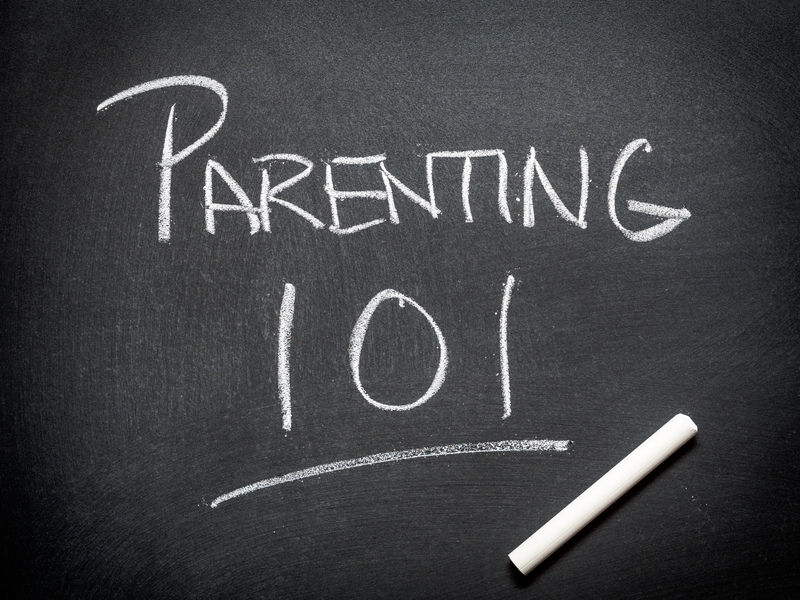
by James Burns | Jan 8, 2019 | Burns' Bench
Children can’t pick their parents, when and where they were born, their physical condition when they were born, their siblings, or even their intelligence. They are influenced by many of these things, not determined, but influenced. They have choices and can always change their response to the influence. As adults because of our own philosophy we can make excuses for children based upon their circumstance, and begin to argue for the child’s weakness. Don’t: accountability is the key regardless of circumstance. A child’s problems might be organic, behavioral, environmental, or psychological. The problems may be clinical or conduct, the circumstances don’t determine accountability. They merely help us understand the reason for the behavior. After a consequence is imposed we can then look at the child’s behavior objectively and offer alternatives to help avoid future problems.
Bench Notice
We are falling further and further into the gray abyss. Too many things are relative and nothing is definite. In years past it wasn’t a matter of if someone was going to get in trouble for lying, stealing, fighting or even just be tardy to school; it was when. Parents can talk their kids out of anything today, and they have done a pretty good job of teaching this to their children. Oh, it helps avoid the immediate consequences, but what they don’t realize is that by default they are agreeing with their child’s behavior when they argue for their weaknesses. Behaviors that will escalate causing the child to believe that it is okay to lie, steal, fight, and be disrespectful; sometime.

by James Burns | Jan 5, 2019 | Burns' Bench
The young parents of today need parenting. Parents who have left home as young adults with a rebellious attitude may not even be speaking with their own parents. They have lost their perception of right and wrong behaviors and sometimes even simple decisions are tough. It’s these parents that will try to bully you as the teacher and the school. They don’t have the ability to cooperate when they disagree and can wreak havoc on the school and your classroom. These parents need to be agreed with immediately. You heard right; agreed with. But, agree in principal, not with the content. Let them know that you can see things from their perspective, but work with them to see things from the same perspective. Instead of a tug of war, move to their side of the rope. Or better yet, let go of the rope. Ease into conversations with these parents and begin to lose your fear of being yelled at. Be an empathic listener, and don’t argue. They need to be taught, and you are going to do it.
Bench Notice
Since the writing of this tip things have gotten worse. My wife went to drop off a forgotten pair of glasses for our eight year old daughter a few weeks ago and wasn’t allowed in the school building. She was told to leave them on the table between the school entrance and the main office. It was like a bunker was set up. All visitors entering my daughter’s school are escorted through the school, including the parents who are known by school administration and teachers, like classroom mothers and the president of the PTA. School shootings have prompted this and I agree that every precaution should be taken for the safety of our children.
I do believe though that the schools are fed up with angry and irate parents and will do what they can to keep them out of the school building. In doing so they are keeping everyone out and with the same brush tarring even the most cooperative parents. Do parents need parenting? Yes, some do. The ones that need it should get it. Until they get it place the restrictions where it needs to be; squarely on the parents who think they own the school and want to wreak havoc because of a poor test grade.

by James Burns | Jan 4, 2019 | Burns' Bench
When kids are unhappy about something that happens in school and they believe that the teacher was the culprit, they will usually go home and complain to mom or dad. If the parents are weak, and are always in a position of being intimidated by their own children, they will usually come into school and argue for their child, defending his/her actions. Why, because they can win the argument with the school, but they will always loss the argument with their own kid at home.
I experienced this once as an administrator; a 17 year old student was bullying his mother in my office. My response to the kid was, “don’t bully your mother in my office.” When this was said the mom felt she now had an ally, and became more assertive with her son. Husbands and wives may disrespect each other in the home in front of the children. Sometimes children will become one of the parents’ confidants and have to listen to complaints about one parent or the other. Anytime you have an opportunity to stick up for or defend a parent when they are being bullied by their own children in your presence do it, you will make a new friend and your discipline of that child will be easier going forward.
Bench Notice
Parents without boundaries usually allow to much freedom and often don’t hold their kids responsible at a young age. This permissiveness can create an environment where kids believe they can say and do what they want, when they want. This starts to become a problem when children become ten years of age and can become progressively worse moving forward.
Parents need parenting,and they need to be taught how to set healthy boundaries with their children. It’s not so much about teaching compliance but more about teaching character. Help parents to understand the importance of respect, and responsibility and how to demand these qualities from their children.
by James Burns | Jan 2, 2019 | Burns' Bench

Dr. Martin Luther King Jr. – Lessons On Character
These lessons are designed to provide the students with a view of some of the quotes by Dr. Martin Luther King and also the character qualities that he displayed as a civil rights leader in the 1960’s. The lesson includes 10 quotes with one bonus quote at the end. Each quote has a character quality associated with it and 5-6 questions that you as the teacher can ask your students that will provoke discussion and give the students a chance to think of their responsibility as it relates to the character qualities. There is a short quiz at the end that the class can take as a whole, with one bonus question. Each question is worth 10 points. The bonus question can be awarded as many points as the teacher would like in order to increase the student’s score.
$9.99

The Super Bowl Trivia Game
This game gives students the opportunity to research questions about past Super Bowls. The students are asked questions, have time to look up answers, and score points in a jeopardy type format. The game is played in a group which helps build community and improve classroom climate and camaraderie. This is a great game to play prior to the Super Bowl for some fun and a little excitement. (Grades 5-12)
$9.99

by James Burns | Dec 30, 2018 | Burns' Bench
How a child is treated in the home can play a role in whether or not the child will become a bully or not. Often if the child is victimized in the home, there is a good chance they could become a bully in school. You read that right, children who are victimized in the home could get the message that the way I get what I want is through fear and intimidation. I know this is something that is usually done by the social worker, but a conversation with the parents and a little intuition can usually be pretty revealing. So be a detective, and ask some questions that may reveal more about the child’s home life then the parents wanted you to know. Sometimes mom’s can let the cat out of the bag about dad’s anger issues, or maybe visa-versa. How ever you get the info, take notes.
Bench Notice
The closed house; a term that years ago was used to refer to a home where there might be abuse, addiction, or neglect. No child wants to be the one who spills the beans about what is going on between mom and dad or some addictive problem that is plaguing the family. They see it as disloyal and can fear the reaction of a parent if in fact he or she discovers that their child ratted them out.
Parents who have anger issues, are neglectful or who are suffering from addiction have grown physically, but not emotionally. Often the abused children of these parents can suffer from the overly responsible syndrome, with the roles reversing and the child actually parenting the parent. Don’t let these children be robbed of their childhood. Step in and help this child realize that the behavior of their parents is not their fault and help them begin to enjoy the wonders of being a kid. By doing so you will help them become more balanced adults.
by James Burns | Dec 28, 2018 | Burns' Bench
Taken From Anti Bullying 101
There are probably many reasons why kids become bullies and why they stay bullies as they move into adulthood. There are many theories and a great deal of experiential opinion on the topic. I believe that there are two major reasons for the rise in bullying behavior over the last 40 years.
The first one is it’s an inter-generational problem. What one generation does in moderation the next one does in excess. In the past kids may have fought their own battles, and settled their own disputes; circumstance plays a big part as well. The second one is that by today’s standards there is far more dysfunction in families and parents may have an overly liberal approach to disciplining their children.
Understanding these two reasons can help teachers get a better handle on the behavior. Sometimes just understanding the why’s of the problem can open up a mind to begin to find a clear solution. The next several tips will cover these two categories. So let’s look at some inter-generation tendencies first, get some tips and then move on to circumstance.
Bench Notice
Bullying is behavior that has been left uncorrected. When parents, teachers, and even society in general fail to correct certain behaviors they then by default communicate to a child or maybe even an adult that they agree with the behavior. This is a critical piece to understand when we observe behaviors such as disrespect, or irresponsibility. Silence at times can be deafening. Certain behaviors just scream for correction, and they can’t be missed.











